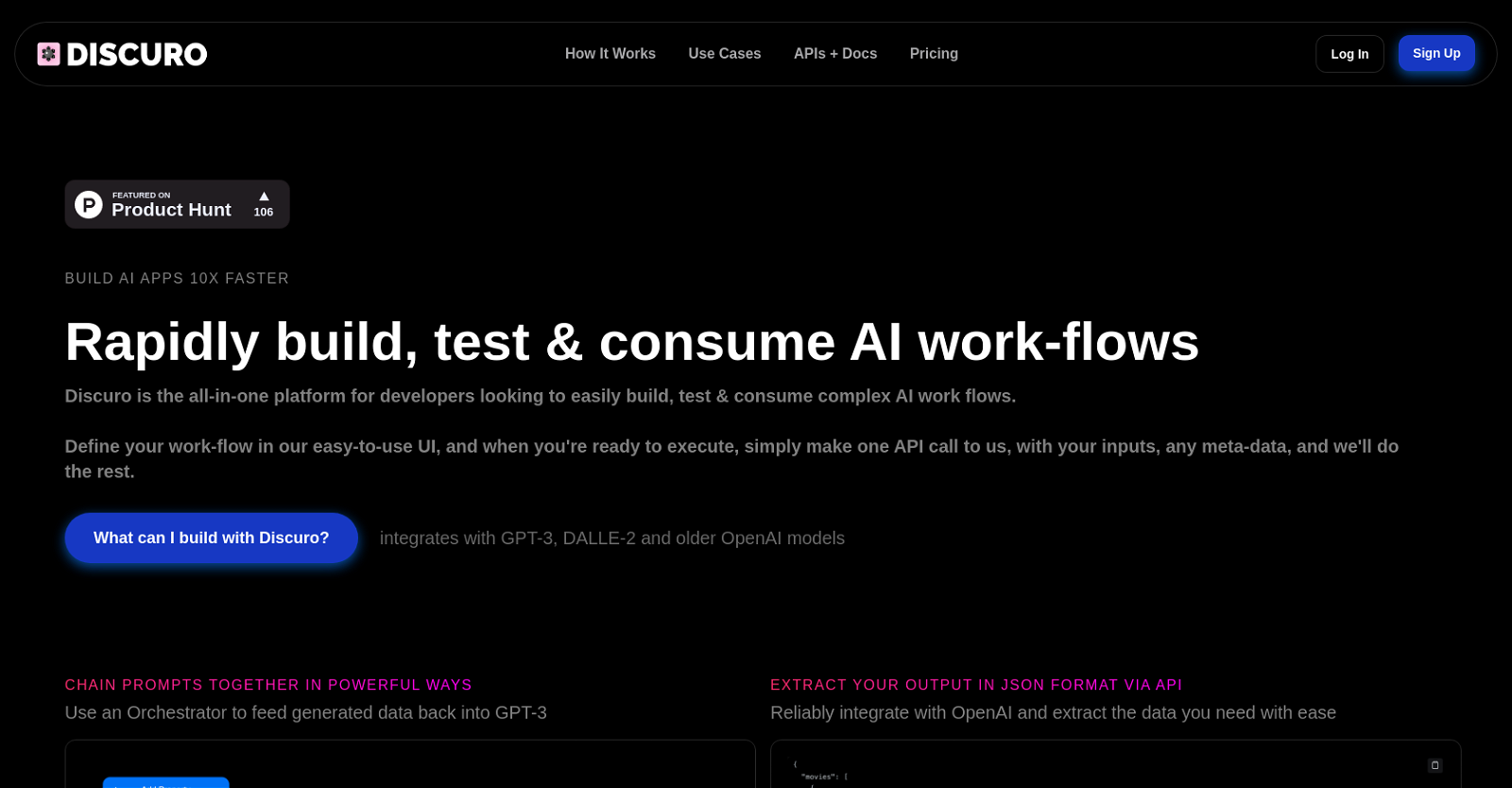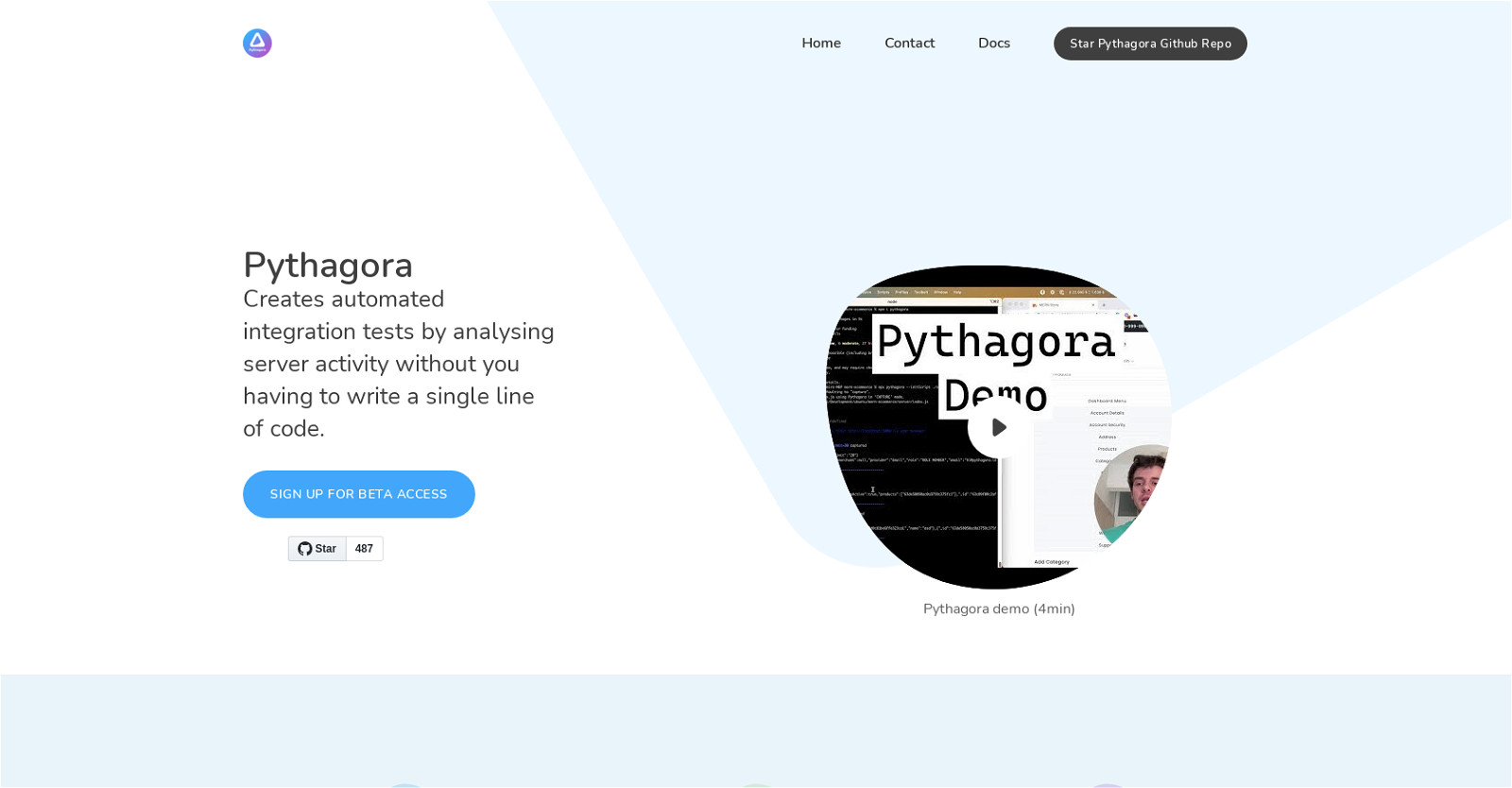DiscuroAI
DiscuroAI is a platform that allows developers to easily build, test, and deploy complex artificial intelligence workflows on top of OpenAI’s GPT-3 AI as a service. With its user-friendly interface, it offers the ability to chain prompt templates together in a powerful way and execute workflows with just one API call.
DiscuroAI integrates with GPT-3, DALLE-2, and older OpenAI models and offers an Orchestrator to feed generated data back into GPT-3. The platform also allows users to extract their output in JSON format via API and seamlessly integrate with OpenAI to extract the data they need with ease. The first challenge in integrating with OpenAI is extracting the data needed, and DiscuroAI handles this by collecting input/output definitions. This allows users to easily build and test complex self-transforming AI workflows and datasets.
The platform enables consistent input to output flow and the ability to chain completions together to build large datasets. It also offers an iterative input feature to feed GPT-3 output back in, consecutive calls to expand datasets and much more. DiscuroAI offers a fully-featured dashboard and monitoring suite to easily monitor AI usage across workflows, enabling users to make better decisions based on how their users consume AI.
Overall, this platform offers a straightforward solution for an effortless integration with OpenAI to build and execute complex AI workflows.



